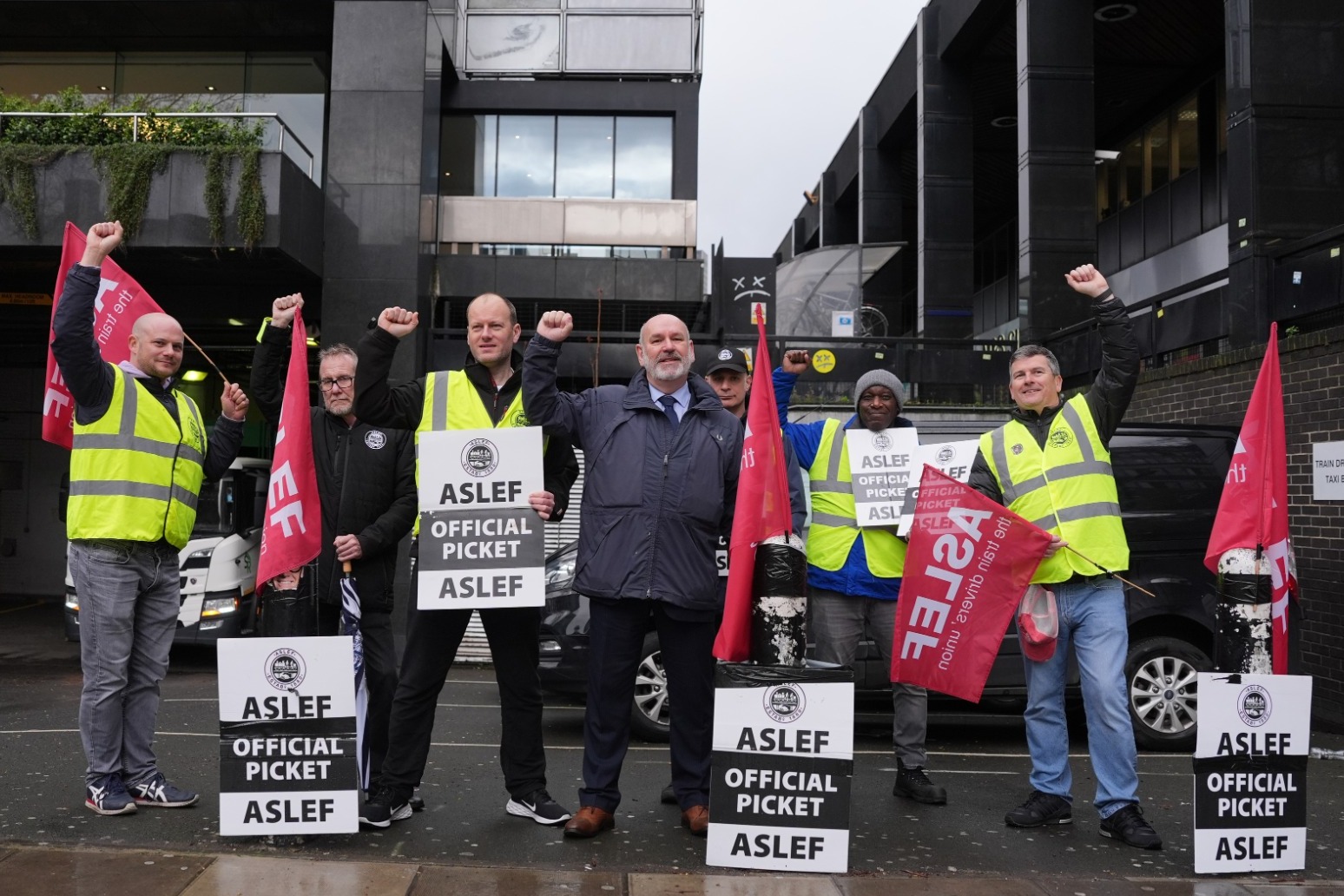
Rail strike hits London commuters
Some of the country's busiest railway lines, including some into the capital, are at a standstill
Trains on some of the busiest routes in the country were at a standstill on Monday because of another strike by drivers in their long-running pay dispute.
Commuters on services into London were among passengers suffering Monday morning travel misery.
Members of Aslef walked out for the third strike in the past four days, crippling services, especially in East Anglia and the South East.
The strike will hit c2c, Gatwick Express, Greater Anglia, Southeastern, Southern, South Western Railway, Great Northern and Thameslink.
Aslef is embroiled in a near two-year long dispute over pay, with no sign of a breakthrough and no talks planned.
The union says the dispute has cost the industry more than £2 billion, way more than it would have cost to resolve the conflict.
South Western Railway said a significantly reduced service will operate on a small number of lines, while the rest of its network will be closed. Trains will only run between 7am and 7pm.
Southern said there will be no trains running across the vast majority of its network, with a limited shuttle service running non-stop between London Victoria and Gatwick Airport.
There will be no Thameslink services running, except for a limited shuttle service calling at Luton, Luton Airport Parkway and London St Pancras and another limited non-stop shuttle service between London Kings Cross and Cambridge.
There will be no Great Northern or Gatwick Express services. However, Gatwick Airport will continue to be served by the limited non-stop Southern shuttle.
Southeastern said most of its routes and stations will be closed. There will be an extremely limited service where trains are running and the operator advised customers not to travel.
A statement said: “If you do travel, expect severe disruption, plan ahead and allow much more time for your journey.
“Trains that are running will be extremely busy, they start later and finish early. You may be unable to board trains at some stations, and we estimate that there could be queues for up to two hours due to the very limited service. Only 29 out of 165 Southeastern stations will be open. No rail replacement buses will serve stations that are closed.”
No c2c trains will run. Rob Mullen, c2c managing director, said: “I’m really disappointed that an agreement with Aslef hasn’t been reached. The impact of this ongoing action is significant for our customers and colleagues. I’m hopeful that further meetings with the unions are productive and see progress made toward concluding this challenging time for the railway.”
Greater Anglia said its first trains of the day will start later and last trains finish earlier than normal, excluding the Stansted Express.
An hourly train service will operate on the following Greater Anglia routes: Norwich/Colchester and London Liverpool Street; Southend Victoria and London Liverpool Street; Stansted Airport and London Liverpool Street. A bi-hourly train service will run between Cambridge and London.
No other Greater Anglia services will operate on any other routes.
Aslef members at 16 train companies are also banning overtime on Monday and Tuesday which will disrupt services.
Picket lines were mounted outside railway stations of operators affected by the strike.
Aslef general secretary Mick Whelan said his members remained solidly behind the industrial action, and criticised the Government and rail companies for the lack of contact over the past year.
The Government introduced a new law last year aimed at ensuring minimum levels of service during strikes, but none of the train companies have opted to use it.
A Rail Delivery Group spokesperson said: “Train companies are working through plans to manage the unnecessary disruption to our passengers caused by this damaging industrial action.
“Minimum service levels are one potential tool for that but they are not a silver bullet. In the meantime we remain committed to resolving this dispute and our offer, which would take average driver salaries to £65,000 for a four-day week without overtime, remains on the table.”
A Department for Transport spokesperson said: “Aslef is the only rail union continuing to strike, targeting passengers and preventing their own members from voting on the pay offer that remains on the table.
“Having resolved disputes with all other rail unions, the Transport Secretary and rail minister have ensured that a pay offer is on the table – taking train drivers’ average salaries from £60,000 up to £65,000.”
National Express was adding thousands of extra seats across its UK-wide coach network.
The coach operator was expecting to carry over 13% more passengers during the strike weekend and added around 100 more coach departures on popular routes to meet customer demand.
Catherine Woolfe, customer and marketing director for National Express UK & Ireland, said: “People deserve affordable, reliable and sustainable public transport and yet again they are seeing disruption on the railways.
“Our forward bookings show that demand for coach travel is up over 13% this weekend, with savvy customers turning to National Express for reliable, great value travel and a guaranteed seat.”
Published: by Radio NewsHub